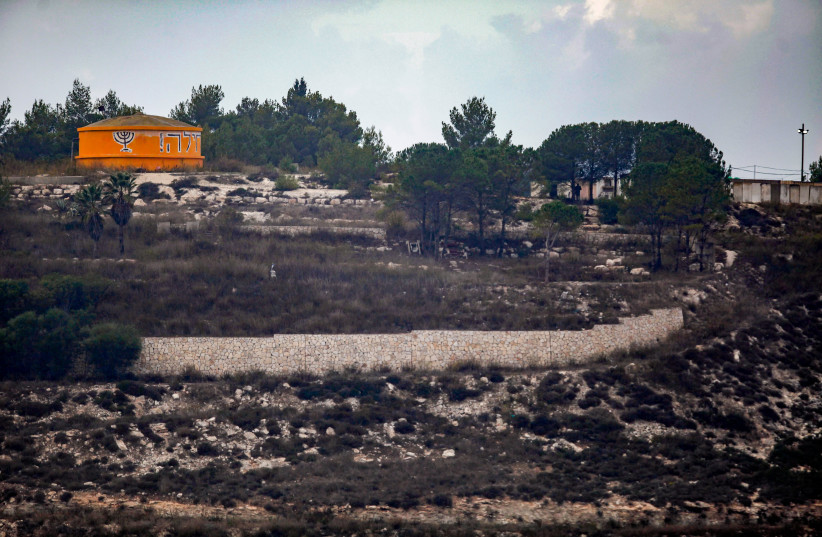State Department spokesman Ned Price spoke two days after the state informed the High Court of Justice that it was looking to change its policy toward the Homesh settlement.

The Biden administration is opposed to Israeli plans to legalize the Homesh yeshiva and to rebuild the West Bank settlement that the IDF destroyed on that northern Samaria hilltop during the 2005 disengagement.
“Our call to refrain from unilateral steps certainly includes any decision to create a new settlement, legalize outposts or allow the building of any kind deep in the West Bank adjacent to Palestinian communities or on private Palestinian land,” US State Department spokesman Ned Price told reporters in Washington.
He spoke two days after the state informed the High Court of Justice that it was looking to change its policy toward the Homesh hilltop in keeping with the coalition agreement that called for the authorization of an illegal yeshiva at the site and the rebuilding of the Homesh settlement.
The hilltop is located in an isolated area of the Samaria region, between Nablus and Jenin. Homesh was one of four settlements destroyed during the 2005 disengagement. The sites of the evacuated settlements are closed military zone, from which Israelis are barred from entering.
Settlers and the Israeli Right have long campaigned to amend the Disengagement Law to allow for the four settlements to be rebuilt.

“The Homesh outpost in the West Bank is illegal, it is illegal even under Israeli law.”
State Department spokesman Ned Price
The Knesset is now looking to fast-track that amendment so that it will be in place when the state submits its response to the court at the start of April.
The legalization of the Homesh yeshiva and construction of a settlement there, however, will face an additional hurdle because most of the land on the hilltop is private Palestinian property. The High Court of Justice in 2013 recognized Palestinian land ownership at Homesh and granted the property owners the right to farm there.
Price underscored in the press briefing that “the Homesh outpost in the West Bank is illegal, it is illegal even under Israeli law.”
The US opposition to the legalization of Homesh also comes as Prime Minister Benjamin Netanyahu’s new government is expected to declare its intention to authorize West Bank outposts en masse. It’s expected that at least 70 of the fledgling communities, also known as young settlements, would be included in that declaration.
Content retrieved from: https://www.jpost.com/breaking-news/article-726683.